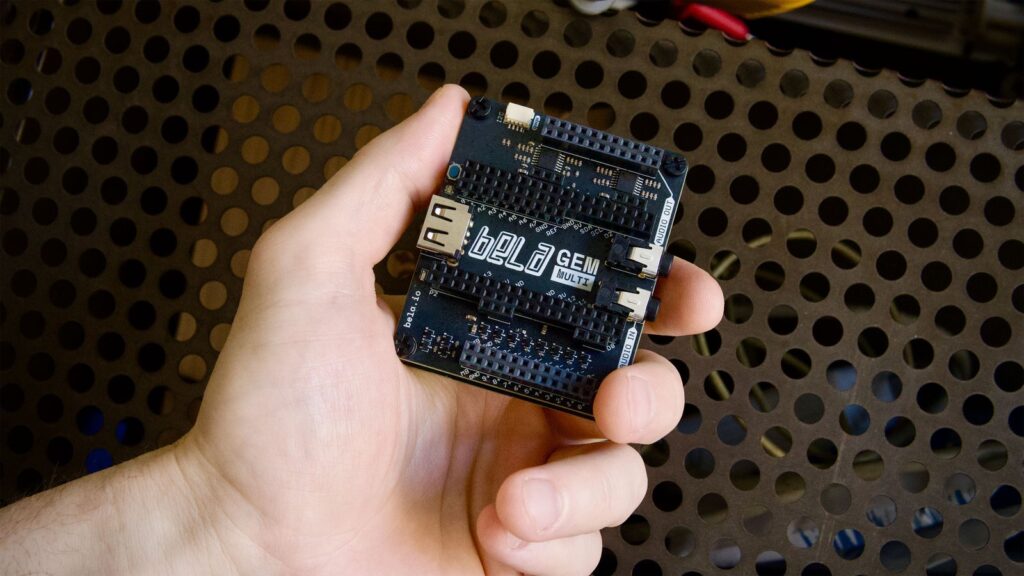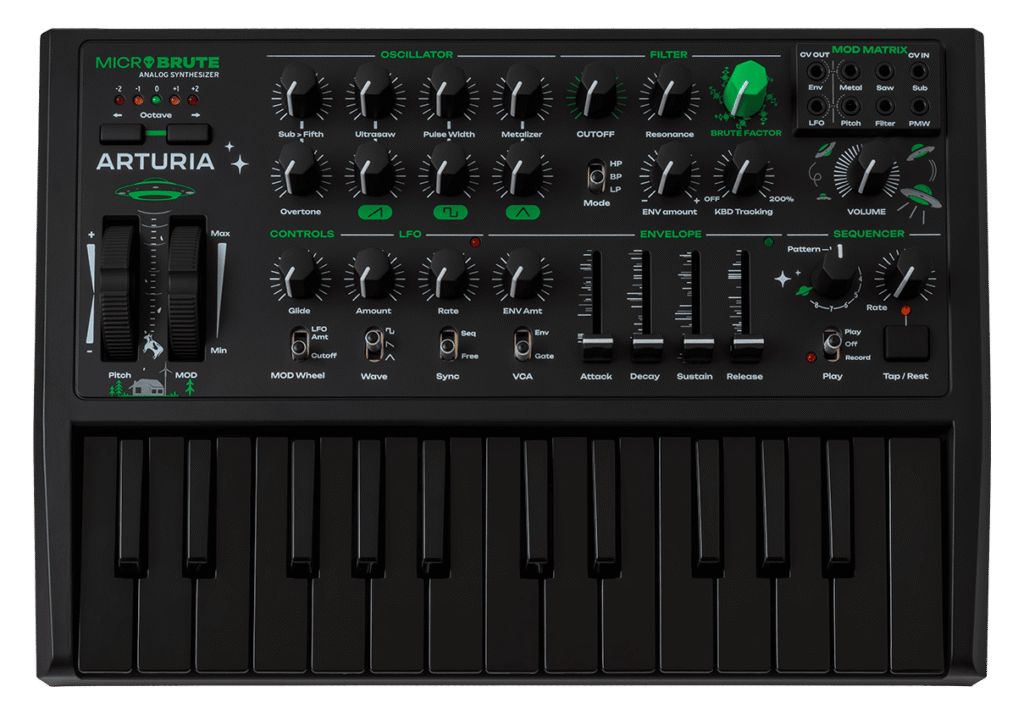AlphaTheta Chordcat Groovebox First Look
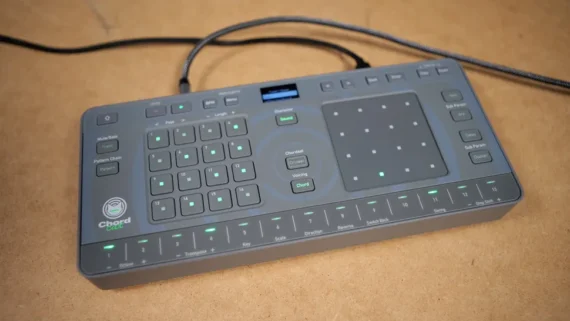
It has been a while since we’ve seen any new music production gear released from AlphaTheta, the brand previously known as Pioneer DJ.
AlphaTheta, today has released Chordcat, a new music production tool ‘Find Harmony, Spark Creativity’ – some fresh and inspiring sequencing ideas, paired with an underwhelming sound engine.
Chordcat is a compact, budget-friendly groovebox that puts chord sequencing at the centre of its workflow. It has eight individual tracks each of which can sequence sounds selected from 145 sample-based instruments and 16 drum kits.
Each track has its own polyphonic sequencer with a maximum of 128 steps. These allow for patterns to be input and edited step-by-step or via live recording. Chordcat also allows for basic parameter recording using its XY pad.
Its most notable features, however, are those that focus on chord sequencing. Chordcat features a scale mode, chord function and pre-made chord sets for quickly creating progressions. It also has an innovative Chord Cruiser feature, designed to automatically suggest chord combinations in order to inspire new compositional ideas – particularly handy for those lacking in musical know-how.
Chordcat is an incredibly convenient feeling piece of hardware – it’s only a touch over pocket sized and very light, meaning that it’s definitely something that can easily be thrown into a backpack and used on the go. It can be powered by either AA batteries or USB-C, which adds to the portability.
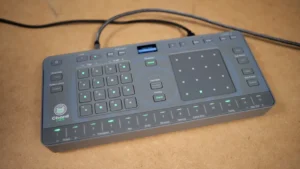
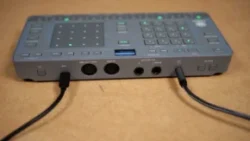
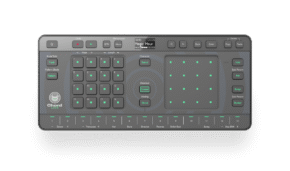
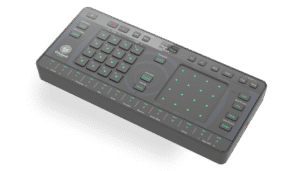
The headline feature of Chordcat is its Chord Cruiser mode. This is designed to automatically suggest combinations of chords. It’s fairly simple to use in operation – the user selects an initial starting chord using the key/scale functions, and then the 16 buttons of the XY pad light up to present a varying number of compatible chords that could work next in a sequence.
These chords can be auditioned using the XY pad buttons. The user can then select their favourites to assign to the buttons along the bottom edge of the UI. Once assigned these chords can be quickly triggered and sequenced with a single button press. There is also a selection of pre-defined chord sets, which are separate from the Chord Cruiser mode.
Chordcat’s other interesting sequencing feature is the Running Direction function inherited from the Toraiz Squid. This can be used to alter the direction in which a sequence moves around the grid of 16 steps, with right, down, clockwise and counterclockwise options, along with the option to reverse sequences and have patterns bounce back and forth. This is a really fun feature, and a great way to quickly turn a pattern on its head or alter the way that Chordcat’s eight tracks are interacting.
Also, there’s a broad range of sounds on offer, including banks of synth tones, pianos, keyboards, basses and multiple drum kits, the selection within these categories is a little vanilla and there’s little in the way of editing capabilities.
Each sound can have its low pass filter and amp envelope controlled via the XY pad, but there’s not much depth here. The filter has just controls for cutoff frequency and resonance, and the envelope has just attack and release. What’s more, in the case of drum kits, these parameters are shared across every sound in the kit – that is, if you want to shorten the release time on a hat, it will apply to your kick as well.
There are a few effects to add a little character. Chordcat features an arpeggiator, delay and ducker, each of which can be controlled via the XY pad. Kits can have reverb applied via a send too, as well as have their individual levels and pan position adjusted.
AlphaTheta has also released a Chordcat Manager application that promises to make it easy to export and import sequences from the device via USB. In short, Chordcat features some genuinely fresh and inspiring sequencing ideas, paired with an underwhelming sound engine.
Chordcat Groovebox Full Overview video:
Chordcat is out now priced at $299. Visit the AlphaTheta site for more.
